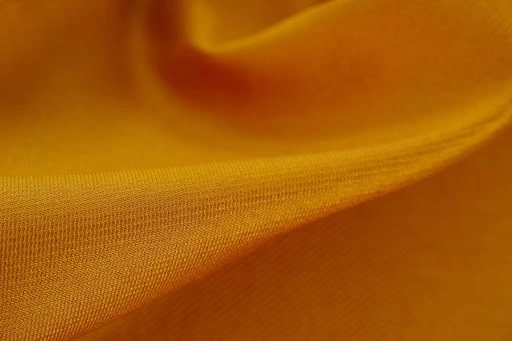Date: 21.04.2025 13:08
Polyester fabric is a synthetic textile type obtained from a polymer derived from petroleum. Due to its durable structure, resistance to wrinkles, and cost-effectiveness, it is widely preferred in the textile industry. Polyester is often blended with natural and synthetic fibers such as cotton, viscose, or elastane to create fabrics with different properties.
Polyester fabric is a type of synthetic textile obtained from a polymer produced from petroleum derivatives. It is widely preferred in the textile industry due to its durable structure, resistance to wrinkles, and economic advantage. Polyester is often blended with natural and synthetic fibers like cotton, viscose, or elastane to create fabrics with different properties.
What are the Advantages of Polyester Fabric?
- Durability: Polyester fabric is highly resistant to wear and tear. It maintains its form even with long-term use, thereby extending the life of furniture.
- Stain Resistance: Its resistance to water and most stains makes it easy to clean on sofas and chairs.
- Fade Resistance: Compared to natural fabrics like cotton or linen, it fades less when exposed to sunlight.
- Easy to Clean: Polyester fabrics can be easily cleaned with a damp cloth or mild detergents, making them particularly advantageous for heavily used living room and dining room furniture.
- Cost-Effectiveness: It offers a more economic option compared to other durable types of fabric.
- Flexibility and Shape Retention: Polyester fibers are flexible and do not sag over time, allowing the furniture to maintain its shape for a long time.
- Water and Mold Resistance: It is resistant to mold even in humid environments, making it a popular choice for garden furniture.
Use of Polyester Fabric in the Furniture Industry
- Sofa and Couch Upholstery: Polyester fabric is commonly used in seating groups due to its durability and anti-stain properties.
- Chair and Bench Cushions: It is preferred for providing comfortable seating in home and restaurant furniture.
- Garden Furniture: Thanks to its resistance to water and sunlight, polyester-blended fabrics are popular in outdoor seating groups.
- Office Furniture: It stands out as a durable option especially in office chairs and waiting room chairs.
- Hotel and Restaurant Decoration: It is also preferred in commercial spaces due to its suitability for heavy usage and ease of cleaning.
- Curtains and Wall Panels: Thanks to its thick and durable structure, it contributes to sound insulation in modern decorations.

Polyester fabric is an ideal option offering long-lasting and practical use advantages in the furniture industry. It is a material preferred for both indoor and outdoor uses due to its durability and aesthetic appearance.
Does Polyester Fabric Cause Sweating?
Polyester is a type of fabric with low breathability. Since it does not provide air permeability like natural fibers, it can trap body heat and lead to sweating. However, specially developed micro-perforated or moisture-transferring types of polyester minimize sweating. "Moisture-wicking" polyester fabrics used in sports apparel provide comfort by rapidly evaporating sweat.
Is Polyester Fabric Nylon?
No, polyester and nylon are different types of synthetic fibers. Nylon is more durable and flexible than polyester. While it is more resistant to water, polyester offers more wrinkle resistance and generally feels lighter. Additionally, polyester fabrics are usually more affordable.
Does Polyester Fabric Stretch?
Polyester on its own is not an elastic fabric. However, when blended with elastic fibers like elastane or spandex, it can gain elasticity. For this reason, polyester fabrics blended with elastane are typically preferred in sportswear and tight-fitting clothes.
What is 70% Cotton and 30% Polyester Fabric Like?
This blend offers an ideal type of fabric by combining the durability of polyester with the breathability of cotton. 70% cotton provides a natural and soft feel, while 30% polyester offers wrinkle resistance and long-lasting use advantages. This blend is commonly used in t-shirts, everyday clothing, and bedding sets, offering a comfortable wearing experience.
Does Polyester Fabric Shrink?
Polyester fabric is more resistant to shrinking compared to natural fibers. While natural fabrics like cotton and wool tend to shrink after washing, polyester generally retains its shape. However, when washed at high temperatures or placed in a dryer, the fabric may experience slight shrinkage or deformation.
Polyester Fabric - A Durable, Practical, and Stylish Option
Polyester fabric is a material preferred in many different applications due to its durability and wrinkle resistance. However, considering drawbacks such as breathability and sweating, it can offer a comfortable wearing experience when selected with the right combinations. Polyester fabrics, with a wide range of applications from casual wear to sportswear, are becoming more comfortable with advances in textile technologies.
